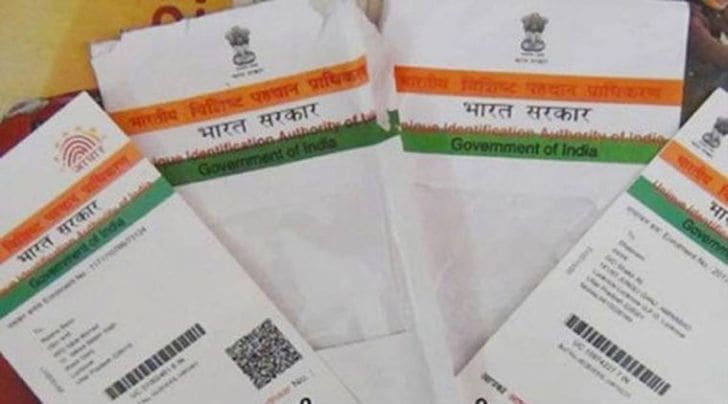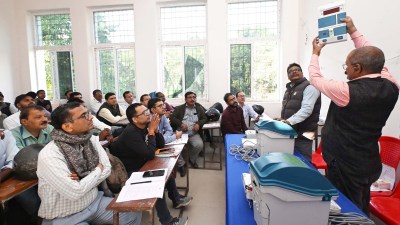Wrapping up a marathon hearing that lasted 38 working days spread over four months, the Supreme Court Thursday reserved its verdict on a clutch of petitions challenging the Constitutional validity of the 2016 Aadhaar Act.
A five-judge bench of Chief Justice of India Dipak Misra and Justices A K Sikri, A M Khanwilkar, D Y Chandrachud and Ashok Bhushan began hearing the matter on January 17.

In concluding remarks, Attorney General K K Venugopal said this was the second longest oral hearing in the history of the Supreme Court, the first being the landmark Kesavananda Bharati case in which the apex court in 1973 outlined the basic structure of the Constitution and ruled that it cannot be tampered with.
Story continues below this ad
Appearing for the petitioners, senior advocate Gopal Subramanium told the bench that if the Act was struck down, the database should be destroyed and those who suffered due to failure of authentication should be paid damages.
Justice Chandrachud referred to Section 7 of the Act which states that the central or state government “may”, for the purpose of establishing the identity of an individual for giving subsidy, benefit or service, require them to undergo authentication and furnish Aadhaar.
He said the word used was not “shall” but “may”, and sought to know “what are the tests that the Centre or states may fulfil before it imposes” such a condition and whether there can be cases where the government may make it mandatory.
On Subramanium’s submissions, Justice Chandrachud said it could be argued that Aadhaar identification impinges on identity if a person is denied a benefit because he cannot furnish Aadhaar identity. Subramanium said that “by identification, we are actually unmaking the dignity of the person”.
Story continues below this ad
Senior advocate Arvind Datar contended that Aadhaar linking would not solve the problem of money laundering and black money as the source of such funds was different. He said people should be given the option of opting out of the unique identity scheme.
Referring to the government citing black money and terrorism to justify Aadhaar, Datar quoted Mirza Ghalib: “Dhool chehre pe thi, aur aaina saaf karta raha” (The dust was on my face, and I kept wiping the mirror). When the other side quipped “dust can gather on the mirror”, Datar replied “then you will wipe your face”.
He cited the 2011 judgment of the Supreme Court in Ram Jethmalani v Union of India which acknowledges that there is a problem of unaccounted money but that cannot, however, be a justification for erasing Constitutional values.
He pointed out that judicial review would still lie even if it is a money Bill. The doctrine of severability too will not apply to this case and if the Aadhaar Act is not a money Bill, all of it must be struck down, he contended.
Story continues below this ad
Senior advocate P Chidambaram, appearing for the petitioners, questioned the passage of the Aadhaar Act as a money Bill and said it was cleared without effective participation of Rajya Sabha.
He said the court must not save a legislation which is fundamentally unconstitutional. There are immense implications, he said, of a non-money Bill being passed as a money Bill. It involves violation of the basic structure as it disables one half, he said.
According to Chidambaram, the Supreme Court does not have to deal with the consequences of the Act being struck down. The court only needs to declare it void and Parliament will take care of the rest, he said.
During the arguments spread over four months, the Centre strongly defended its decision to seed Aadhaar numbers with mobile phones, telling the top court that it could have been hauled up for contempt if the verification of mobile users was not undertaken by it.
Story continues below this ad
The court, however, said that the government had misinterpreted its order and used it as a “tool” to make Aadhaar mandatory for mobile users.

 The hearing in the Aadhar case lasted for 38 days.
The hearing in the Aadhar case lasted for 38 days.






